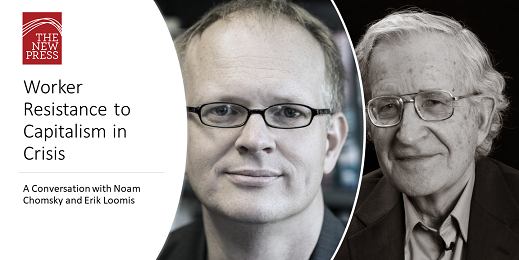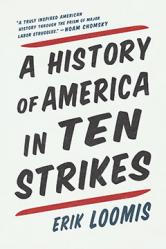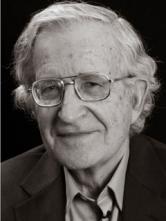
What do recent pandemic-related strike actions mean for the future of the labor movement?
What demands can labor make heading into the November election?
How do we build worker power in a world where many can't leave their homes?
After the COVID-19 crisis abates, many Americans may never view work the same way again. As essential workers engage in call-outs and strikes to fight for safe working conditions, the labor movement, and indeed the entire economy, are in a state of unprecedented flux. Join two thinkers to piece together the implications of the pandemic on the labor landscape.
Noam Chomsky is Institute Professor (emeritus) in the Department of Linguistics and Philosophy at the Massachusetts Institute of Technology and Laureate Professor of Linguistics and Agnese Nelms Haury Chair in the Program in Environment and Social Justice at the University of Arizona. A world-renowned linguist and political activist, he is the author of numerous books, including On Language; Understanding Power: The Indispensable Chomsky, edited by Peter R. Mitchell and John Schoeffel; American Power and the New Mandarins; For Reasons of State; Problems of Knowledge and Freedom; Objectivity and Liberal Scholarship; Towards a New Cold War: U.S. Foreign Policy from Vietnam to Reagan; The Essential Chomsky (edited by Anthony Arnove); On Anarchism; and (with Michel Foucault) The Chomsky-Foucault Debate, all published by The New Press. He lives in Tucson, Arizona.
Erik Loomis is an associate professor of history at the University of Rhode Island. He blogs at Lawyers, Guns & Money on labor and environmental issues past and present. His work has also appeared in the New York Times, the Washington Post, Dissent, and the New Republic. The author of Out of Sight and A History of America in Ten Strikes (both from The New Press) as well as Empire of Timber, he lives in Providence, Rhode Island.



